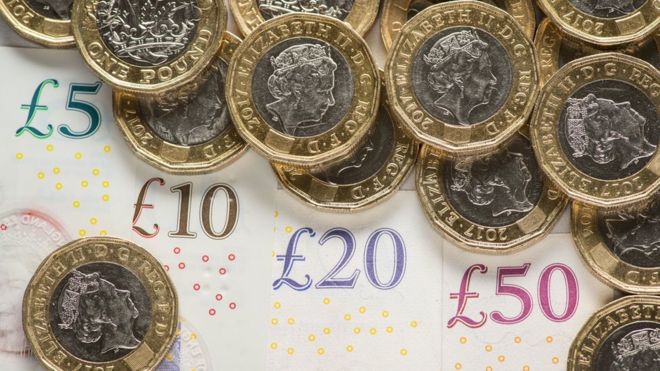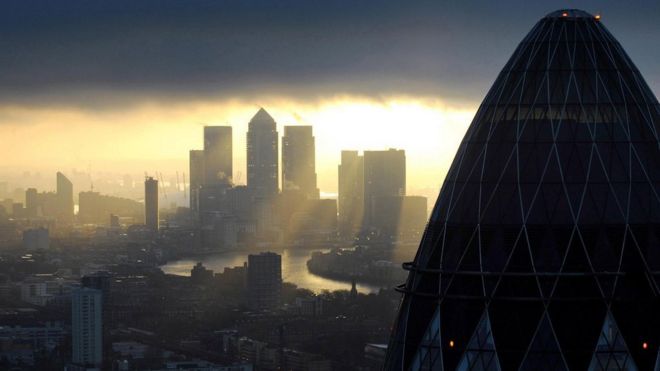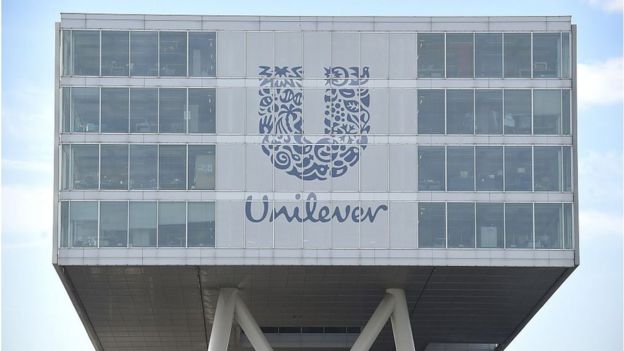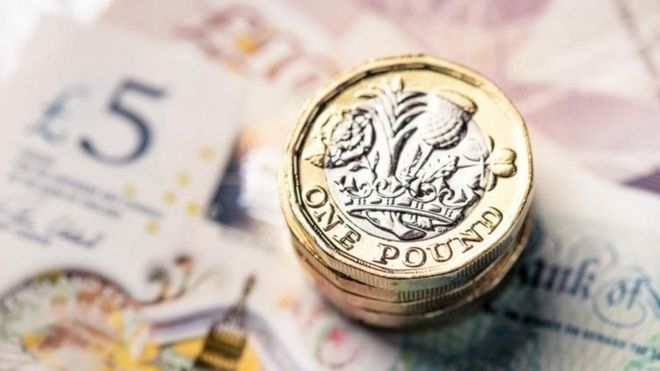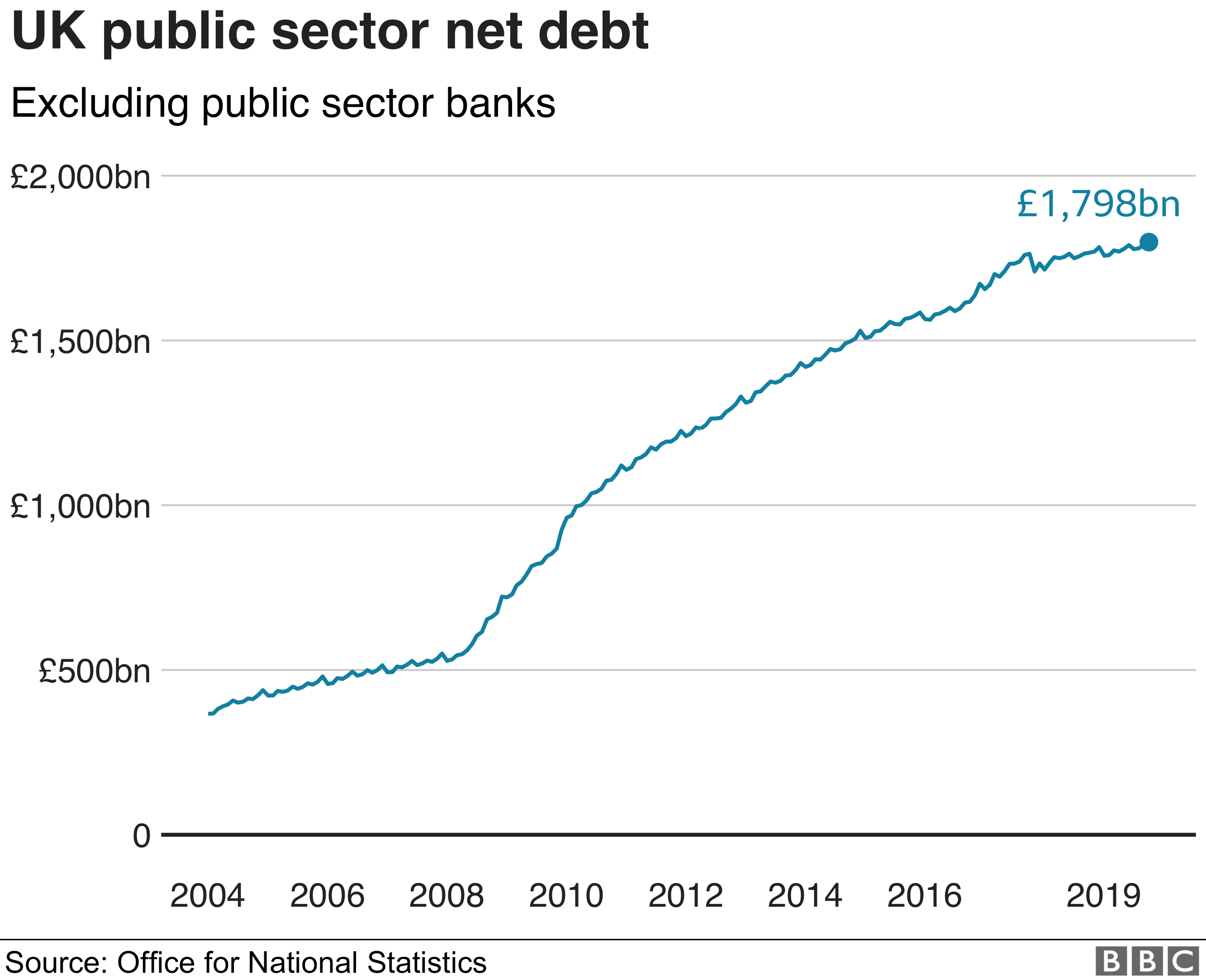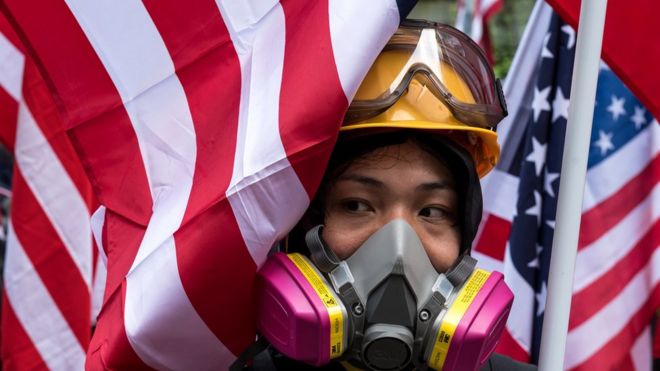 GETTY IMAGES
GETTY IMAGES
A US law supporting pro-democracy protesters in Hong Kong may unsettle trade talks with China, but is unlikely to derail them, analysts say.
The US president has signed into law a bill that requires an annual review of Hong Kong's special status with the US.
Hong Kong has seen months of increasingly violent clashes between protesters and the police.
The law comes as the world's two largest economies are trying to end their trade war.
US President Donald Trump said he signed the law, known as the Human Rights and Democracy Act, "out of respect for President Xi [Jinping], China, and the people of Hong Kong".
China responded strongly, with its foreign ministry threatening "counter-measures" if the US continued "going down the wrong path".
Michael Hirson at Eurasia Group said that Mr Trump's signing of the bill "will not derail trade negotiations".
"To be sure, Beijing is angered at the US for interfering in what China considers its domestic affairs and for emboldening the protest movement," he said.
"But some of China's anger over the bill is posturing for the domestic audience, and Beijing will not be so upset as to let this stand in the way of a truce over trade."
What's at stake?
Analysts say the US and China both want to keep the negotiations from stalling, given that stakes are high.
They have been fighting a trade for more than a year, placing tariffs on billions of dollars of each other's goods.
China faces another round of US duties on 15 December, and if talks break down, these are likely to go ahead.
That would place an additional burden on an economy which is already growing at its slowest pace in decades.
The US also wants to avoid higher costs and economic hardship for American consumers, particularly ahead of US elections next year.
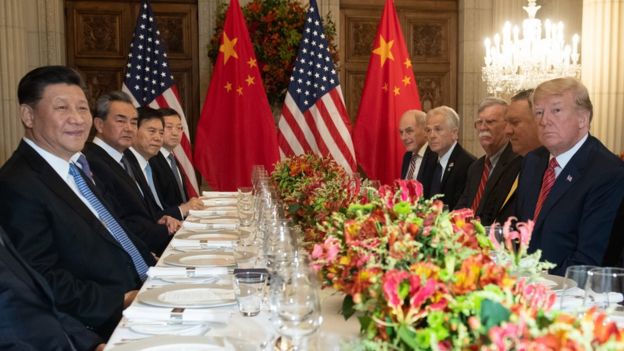 GETTY IMAGES
GETTY IMAGES
The December tariffs are concentrated on consumer goods and would therefore have "a bigger impact on inflation and households than previous rounds of tariffs did", said Julian Evans-Pritchard, senior China economist at Capital Economics.
"The Trump administration appears reluctant to go ahead with the December tariffs because we're reaching the stage where tariffs are starting having a negative impact on the US economy," he added.
"There are still incentives on both sides to push for a deal, provided they can agree on the terms."
How significant is the passing of the US law?
The Human Rights and Democracy Act mandates an annual review to check if Hong Kong has enough autonomy to continue to justify its special status with the US.
Among other things, Hong Kong's special trading position means it is not affected by US sanctions or tariffs placed on the mainland.
The bill also allows for sanctions to be imposed "on those responsible for human rights violations in Hong Kong".
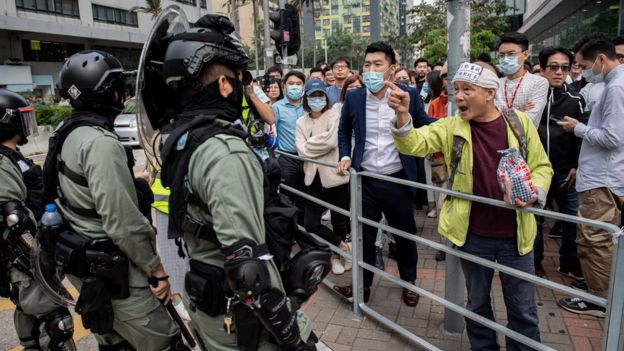 GETTY IMAGES
GETTY IMAGES
But analysts said the bill would have no immediate consequences.
"The US law calls on the administration to review Hong Kong's special status and to sanction Chinese officials for repression in Hong Kong, but [Mr] Trump is very unlikely to take action in either area," said Hirson.
Where are we now with trade talks?
US-China trade talks over the past year have been volatile. Sticking points have included how to enforce any deal that is agreed.
More recently, both sides seem to be nearing an initial so-called "phase one" deal, which will reportedly cover matters such as agricultural purchases, but avoid more sensitive structural issues.
A looming 15 December deadline has made the need for an agreement more urgent, but for some analysts, the passing of the Hong Kong rights law in the US has thrown a spanner in the works.
"All of the economic logic in favour of reaching a deal and forestalling further tariff increases remains in place," said Stephen Olson, research fellow at the Hinrich Foundation.
"The open question is whether [China's] displeasure will be sufficient to scuttle the Phase One trade deal, which by most accounts appeared to be close to conclusion. At a minimum, it will complicate - and likely delay - resolution."
